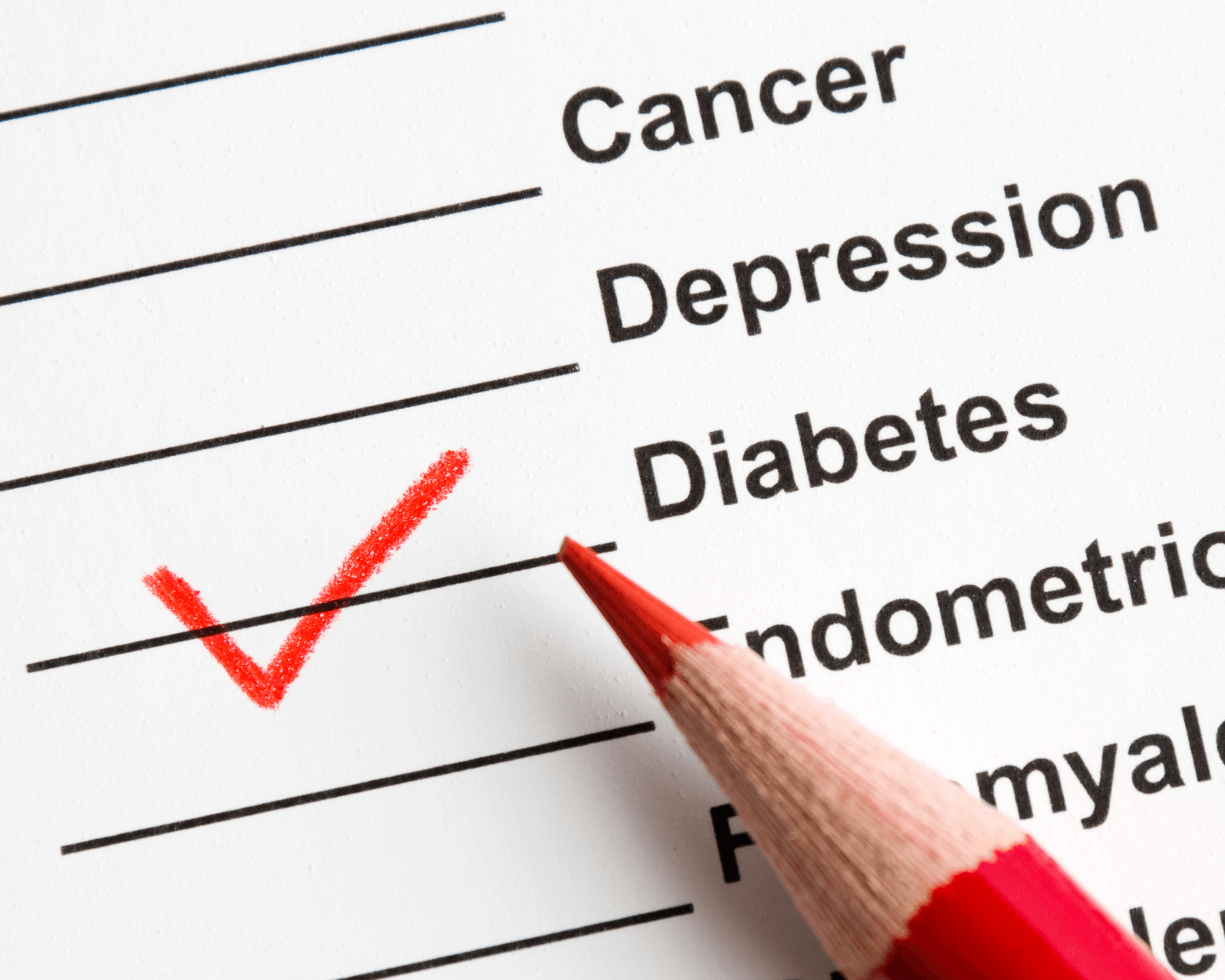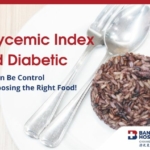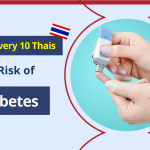Control Blood Sugar and Diabetes in Effective Ways
Many people are familiar with the term "Diabetes," which refers to a chronic disease characterized by high blood sugar levels. Diabetes treatment requires a lifelong commitment and long-term care. Even if a diabetic patient recovers from the condition, blood sugar levels must be maintained within a safe range to avoid complications.
Blood sugar targets, either fasting blood sugar or insulin levels, may be different depending on individual factors and consultation from a physician.
Now the Glycated hemoglobin (HbA1c) test is available for those diabetes patients with ongoing treatment. The test enables a physician to diagnose and prevent long-term diabetes complications.
How High Is Blood Sugar Levels to Be Diagnosed Diabetes?
- For persons who are unsure whether or not they have diabetes and need to check their blood sugar levels.
- Normal A1C results: below 5.7 mg%
- Prediabetes A1C results: 5.7 - 4 mg%
- Diabetes A1C results: 6.5 mg% or higher
- For persons who are unsure whether or not they have diabetes and need to check their blood sugar levels.
- Normal A1C results: below 5.7 mg%
- The National Health Security Office recommends that the Glycated hemoglobin (HbA1c) test be used to forecast long-term diabetes complications in diabetic patients, as follows:
- Low risk of developing diabetes complications: lower than 6.5 mg%
- Moderate risk of developing diabetes complications: 6.5 - 7.9 mg%
- High risk of developing diabetes complications: blood sugar levels of more than 8 mg/dL and high blood sugar levels more than three times per week.
Stabilize Blood Sugar Levels with HbA1c Test
The HbA1c (glycated hemoglobin) test is used to determine one’s average blood sugar levels over the previous three months. The test will reveal the average amount of glucose attached to the hemoglobin which is a part of red blood cells. The presence of a large amount of glucose in hemoglobin might indicate the stage of diabetes.
The HbA1c test is suitable for diabetics who are just starting treatment since it not only assesses how well patients control their blood sugar levels but also helps physicians in predicting diabetes complications.
What We Need to Know About HbA1c Test
- The HbA1c test must be used in conjunction with other tests in order to discover diabetes or receive treatment. HbA1c, fasting blood sugar (FBS), and self-monitoring of blood glucose (SMBG) are all different blood sugar assays that cannot be used to substitute any other form of blood sugar test.
- Patients with underlying conditions such as chronic renal disease, liver disease, anemia, or any other ailment that causes blood loss should see a physician before performing the HbA1c test, since the findings may be inaccurate.
- Blood sugar levels may be lower than usual in some circumstances, such as pregnancy, anemia, or chronic renal illness.
- Diabetes is diagnosed by a physician, and patients must see a physician for evaluation and treatment.
Internal Medicine
Sub-specialty Endocrinology and Metabolism
Internal Medicine Clinic | Bangkok Hospital Chiang Mai
For more information, please contact
Tel: 052 089 823
Call Center: 1719
"Open daily from 07.00 – 20.00 hrs.












